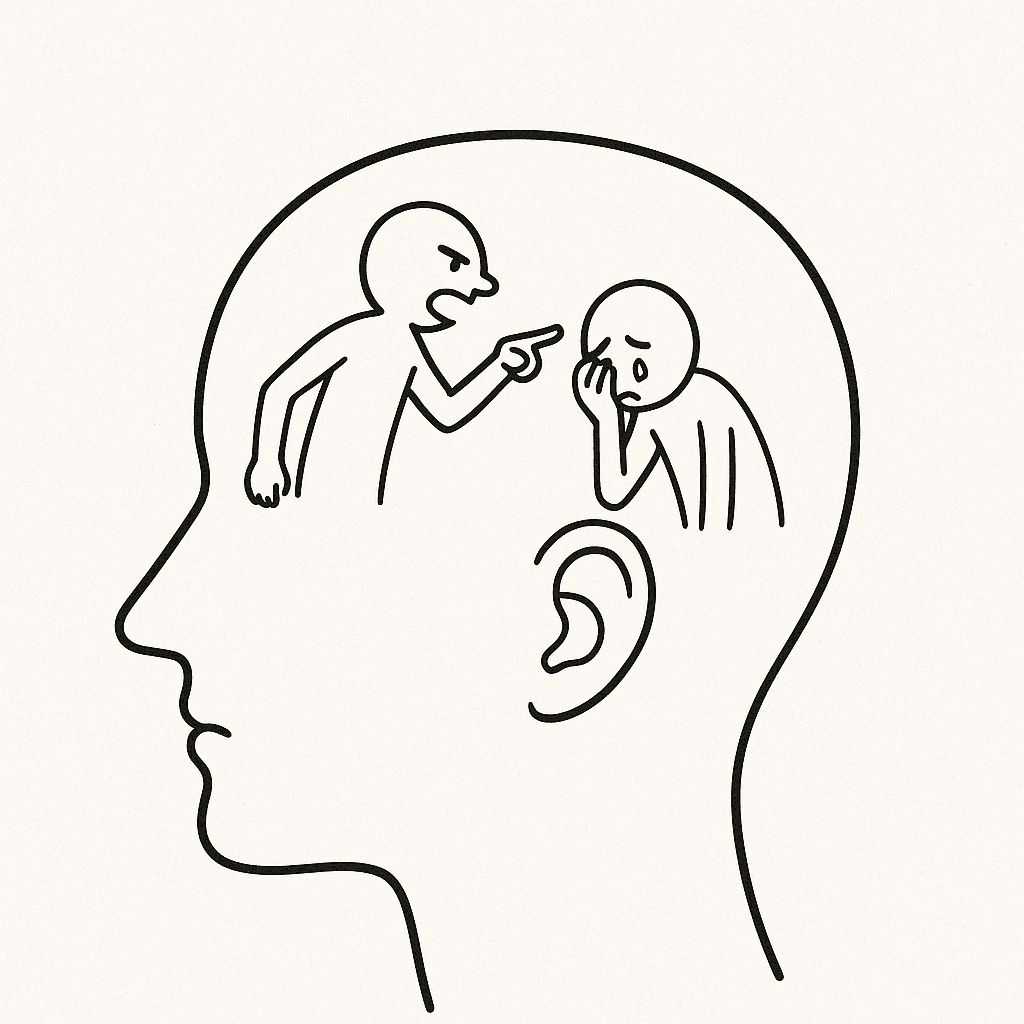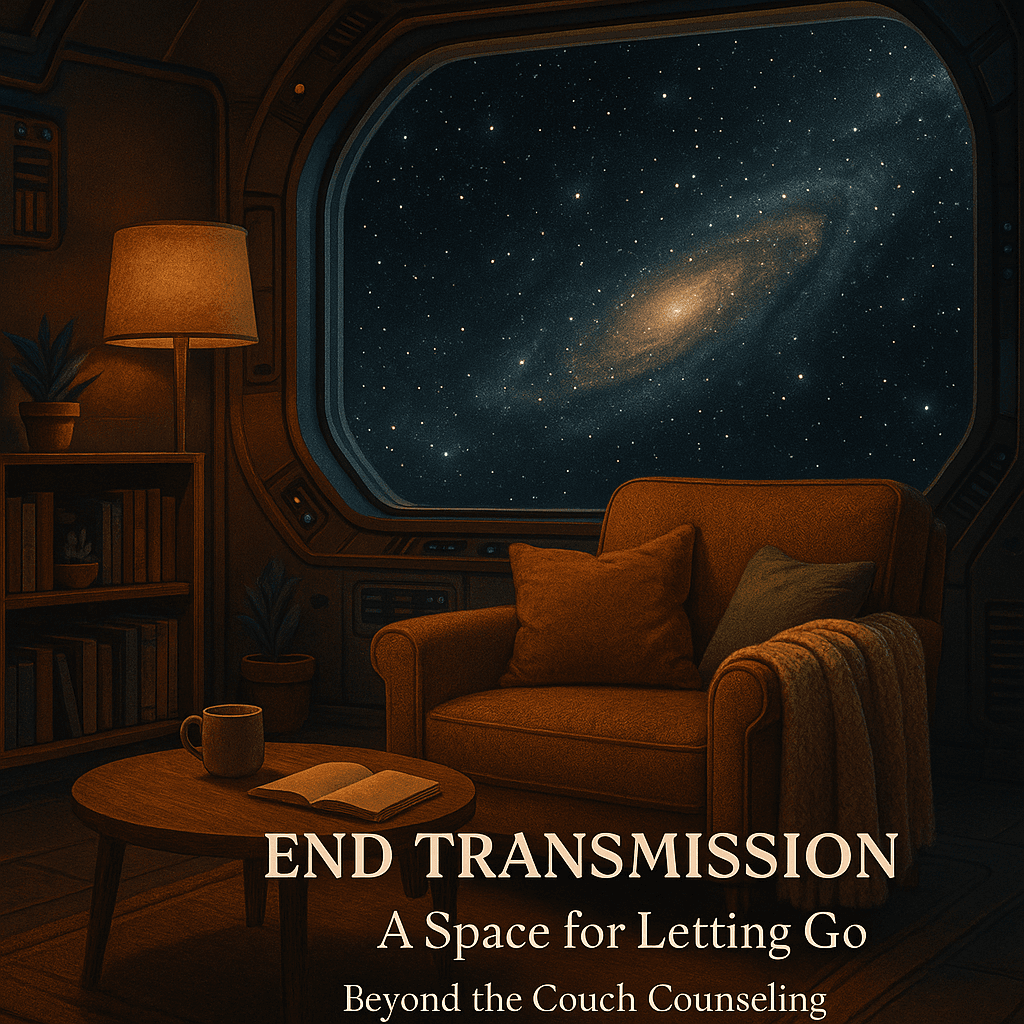The Way You Speak to Yourself
If you could record the way you speak to yourself and play it back, would you let anyone else hear it?
Most people wouldn’t. Most people would be horrified. Because the truth is, the way you speak to yourself is often cruel. Words you would never say to a child, or a partner, or even a stranger, are the words you whisper to yourself all day long.
“You’re not enough.”
“Why did you do that?”
“Of course you messed it up.”
And here’s the hardest part: that voice has been with you for so long, you probably believe it’s the truth.
Where That Voice Began
For many of us, that voice is borrowed. It carries the tone of a parent who was impatient, or a teacher who humiliated us, or a silence that cut deeper than words. The nervous system records experiences long before we know how to reason. A single phrase, a single expression, a single absence can settle into memory and become the script we repeat decades later.
We tell ourselves it’s “just the way I am.” But listen closely: it is not you. It is an echo.
And echoes, no matter how loud they feel, are not the original sound.
Imagine This
Imagine a seven-year-old sitting at your kitchen table. A little messy hair, a little milk mustache, eyes full of hope. Now imagine leaning down and saying, “You’ll never get this right.” Or, “Nobody cares about you.”
You would never do it. You’d feel sick to even try. Because you know words can wound.
Yet this is what so many of us do to ourselves, every day. Not once. Not twice. But hundreds of times. Quietly, habitually, as if it is the only language we know.
That child is still here. Still waiting for someone to finally say something different.
The Cost of Silence
This voice has shaped more of your life than you may realize. It has been in the room when you decided not to apply for a job. It whispered in your ear when you stayed too long in a relationship that was already breaking you down. It stiffened your shoulders when you tried to speak up in a meeting.
It’s why you wake up already tired, and why you collapse into bed at night carrying a weight you can’t quite name.
Not because you weren’t capable. Not because you weren’t worthy. But because the voice told you otherwise.
And you believed it.
A Different Voice
Now imagine a different scene. Same child at the table. Same messy hair, same searching eyes. This time you say:
“I’m proud of you.”
“You’re learning.”
“You belong here.”
Picture the way the child lifts their head. The way their chest opens. The way their face brightens at the thought that they are safe, seen, loved.
This is what your nervous system has been waiting for. This is what your body has been longing to hear from you.
Why It Matters
Self-talk is not background noise. It is the soil your entire life grows in. If the soil is harsh, growth becomes twisted and stunted. If the soil is nourishing, growth can happen even in the hardest seasons.
This isn’t about empty affirmations. It’s not about forcing yourself to chant “I’m amazing” until you finally believe it. It’s about refusing to poison yourself with words you would never use on someone you care about.
It is about choosing honesty and kindness in the same breath.
A Small Practice
Try this right now.
Close your eyes. Put your hand on your chest. Whisper, “I’m trying. I’m still here.”
Notice the way your body responds. Maybe your throat tightens. Maybe tears come. Maybe you feel nothing at all. That’s okay. What matters is that your body is listening. It knows the difference between cruelty and compassion.
The critic in your mind may roll its eyes. But deeper down, something is aching with relief.
The Work of Healing
Changing self-talk is not glamorous. There are no crowds cheering. No Instagram posts go viral when you look in the mirror and finally say, “I’m proud of you.”
It happens in the quiet. In the car when no one is with you. In the bathroom when you’re brushing your teeth. In the middle of the night when your chest feels heavy and sleep won’t come.
It is slow. It is private. But it is sacred.
Because every time you choose a kinder word, you are teaching your nervous system: we don’t live in that old house anymore. The cycle ends here.
A True Companion
Here is a truth that may sting: no one will be with you more than you will be with you. Not your partner. Not your parents. Not your friends. Not even your therapist.
You are your own constant companion. The one you wake up with. The one you fall asleep with. The one who knows everything you’ve done and everything you’ve thought.
So ask yourself: what kind of companion do you want to be?
Building a Better Voice
The critic will not disappear overnight. But you can begin to invite another voice into the room. One that says:
-
I see how hard you’re trying.
-
Mistakes don’t define you.
-
You are allowed to rest.
-
You are allowed to be here.
At first it may feel forced. You may not believe it. But keep speaking anyway. The point is not perfection. The point is practice.
Because the voice you rehearse becomes the voice you live inside.
A Story We All Know
I have sat with people who, for the first time in their adult lives, realized their harshest thoughts weren’t “just the truth.” I’ve watched fathers crumble when they recognized they were repeating to themselves the same words their fathers had used to wound them. I’ve seen women sob when they finally noticed their inner voice always whispered, “Nobody stays.”
These are not small realizations. They are earthquakes. And yet in the rubble, something tender emerges. The recognition that it doesn’t have to be this way forever.
Our Perspective
At Beyond the Couch Counseling in Grand Rapids, we believe therapy is not just about solving problems. It is about helping you become someone you can stand to live with. Someone who speaks to themselves as if they matter.
Because you do.
Therapy can help you trace where the old voice came from. It can help you grieve the years lost to it. And it can help you practice a new voice, word by word, until it becomes familiar.
Final Word
If you remember nothing else, remember this: you deserve to live inside words that feel like home.
You deserve a voice that steadies you when you stumble. A voice that says, “You belong here” when everything else tells you otherwise. A voice that builds you instead of breaking you down.
So let this be the moment you begin again. Speak to yourself as if you were someone you love. Because you are.
And if no one has ever told you before, hear it now:
You are worth speaking kindly to.
You are worth the breath it takes to say, “I belong here.”
You are worth love, even your own.







